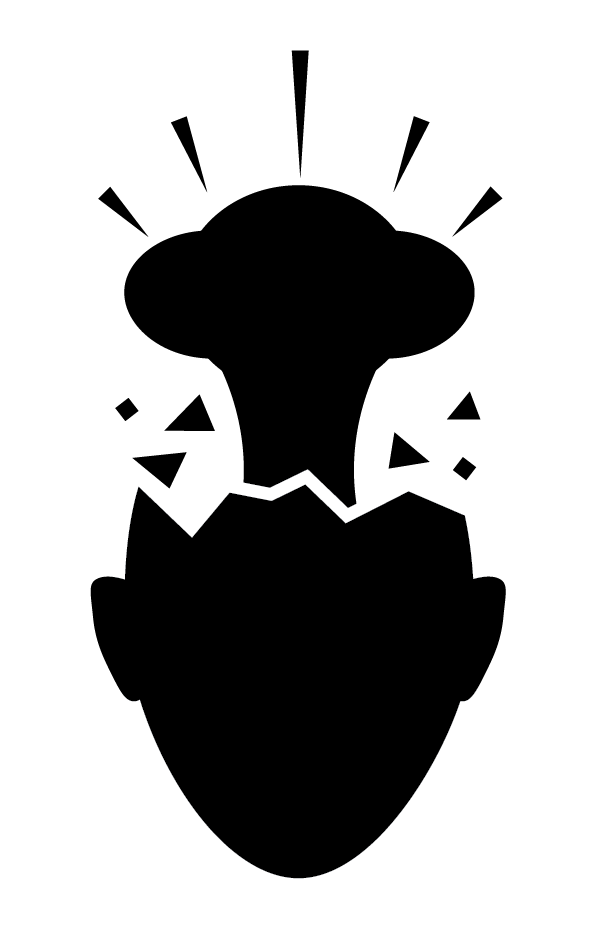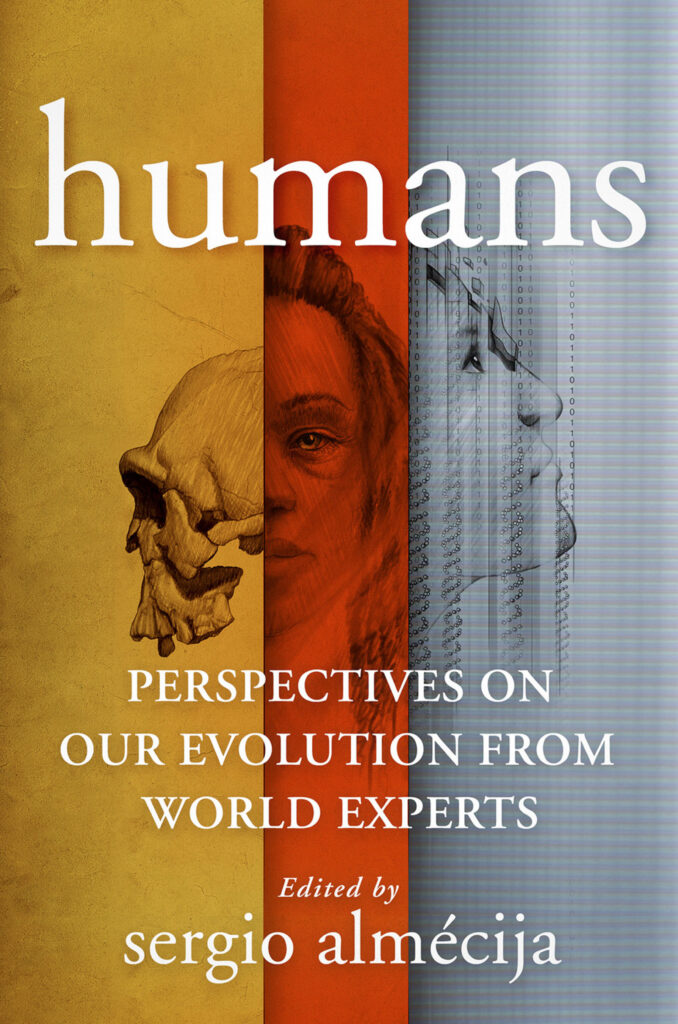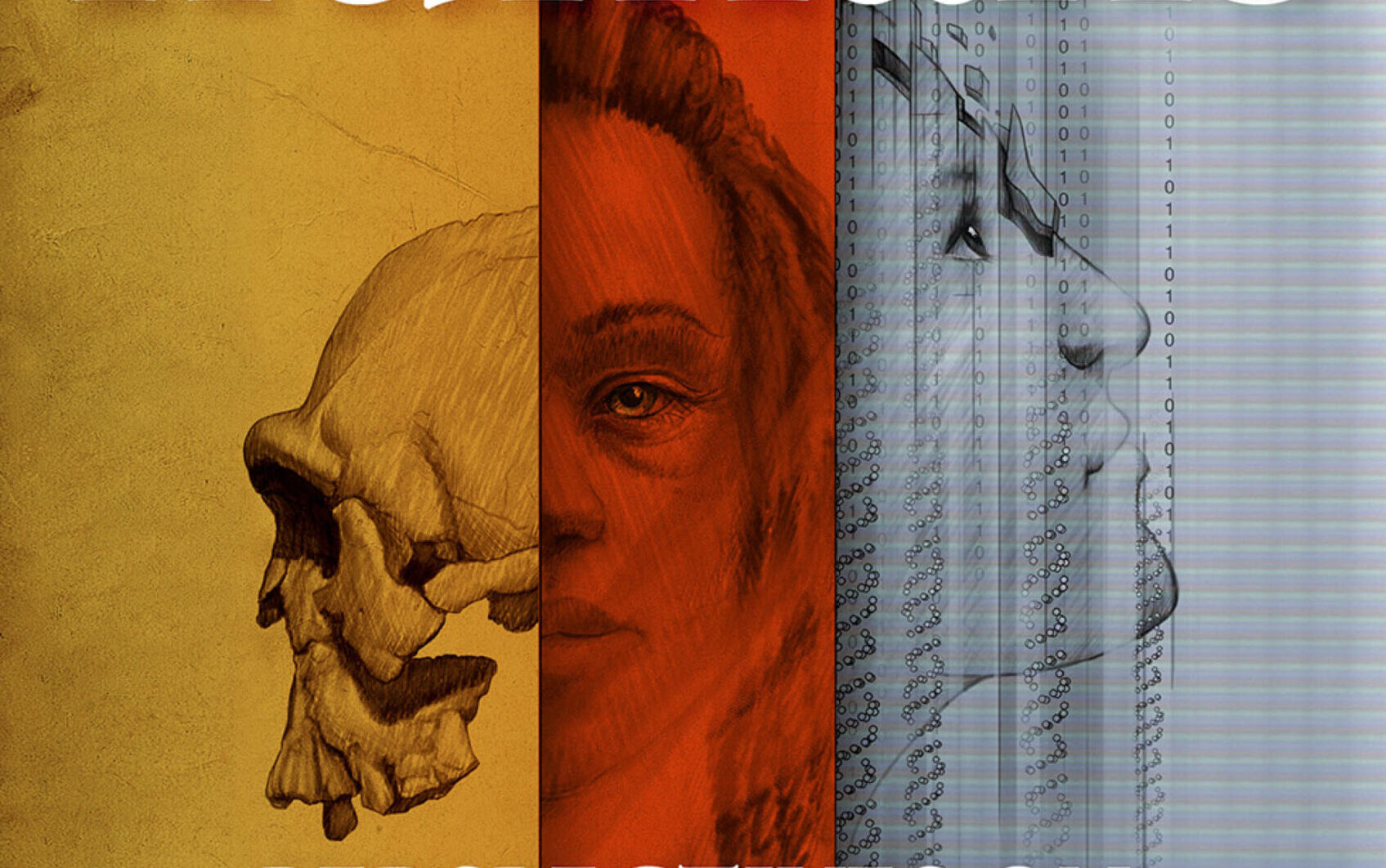Perspectives On Our Evolution From World Experts
Get humans (see details below).
Human Evolution
Human evolution is a fact. Simply put, we have changed over time, both physically and mentally. We are not alone. The same has happened to others. Just look at the immense fossil and archeological records. What we see today is just our own biased snapshot of a much larger dynamic process. Humbling.
Do you want to know another “fact”? There is still a lot of missing information—our evolutionary history book lacks many pages. Furthermore, our understanding of the information that we do have is a work in progress.
#bookHUMANS
The book HUMANS presents personal perspectives about human evolution and our nature from 100+ top-notch world experts in different aspects of the field (see the incredible list below). Some share their journey. Some speak about what they think is important or interesting. Some give tips for others that might want to follow their steps. Some talk about the past. Some discuss the present. Some predict the future.
How does it work? As a researcher fascinated by the multiple narratives surrounding our origins and basic nature, I decided to compose a list of questions (see full list below) and reach out to other experts. First, I contacted my closest colleagues, starting with the most senior. Those I worked with or that I knew personally and I respected the most. Those with decades-long experience in the field and in life…
I explained my vision of a book compiling their answers in a free-from alongside those of many others. These were my first test subjects. Some declined the offer (“too strange,” “too daunting”). Others loved the approach and provided incredibly insightful answers. Some even suggested the names of other colleagues they were interested in knowing their answers. Of course, I reached them all, and the list grew organically from there.
HUMANS started as a crazy idea, with no publishing deal in sight. But it evolved into a four-year project leading to a book (published by Columbia University Press) featuring 103 leading world experts, their stories, their insights, their advice, and their predictions.
HUMANS shows that most topics in human evolution are still heavily debated in the scientific community. Is this “bad” for the field? Hardly.
HUMANS shows the “behind-the-scenes” of a field that is constantly evolving organically through the symbiosis of ideas and approaches from multiple fields. There is still much to come into the big picture.
HUMANS levels the field and invites you to join the human evolution game. Do you get the title now?
The Questions
I designed these questions to be simple yet summon years of accumulated knowledge and experience in the form of personal stories. Another goal was to provide a venue for the experts to express some ideas to a wider audience beyond those who focus on jargon-based research articles. I asked them to answer at least five of these 10 questions. Some responded to more. A few responded to all!
Introductory Questions
I conceived the following three questions as “ice breakers” intended to introduce the experts and their interests, in their own terms.
 Your Beginnings
Your Beginnings
Can you identify and describe the moment in your life when you decided to do the work that you do?
This question provides an opportunity for the experts to present the catalytic moment or collection of moments that led to their current life and work. It is not surprising that many were hugely inspired by small events during their childhood or key people in their surroundings (such as a particularly involved and caring teacher or a visit to a museum!).
 Game Changer
Game Changer
Which discovery, research study, or book would you highlight as a “game changer” in the way we look at our own evolution? How did it influence your career or life?
The intention of this question is to highlight works or discoveries that were important enough to influence the perspective and motivation of the experts. I believe that these could be rediscovered after their exposure here and illuminate the nature of evolution for many others as well.
 Amazing Fact
Amazing Fact
What fact about humans or human evolution amazes you the most?
This straightforward and simple question was aimed at dragging a particularly fascinating idea out of the experts’ minds. My intention also was to highlight the idea that many experts do not believe that there are many facts but instead see evolutionary scenarios and hypotheses to test.
Core Questions
These questions were designed to constitute the heart of the intellectual feedback from the experts participating in the book. If they answered some of the “Introductory Questions,” the formal presentations are now over. What do they really have to say?
 Time Travel
Time Travel
If you had a one-shot round trip in a time machine, to which specific time period—past or future—would you go and why?
This was my way of asking, “What is the most important time period of humanity for you and why?” For some experts, it represented too much of a “sci-fi” approach. For others, it offered an excellent opportunity to pin down moments in time that are key for understanding the major transitions in our evolution. This question also provided the opportunity to formulate predictions about where we could be headed—in other words, a chance for time travel in mental space!
![]() Driving Factors
Driving Factors
What were the main driving factors that set an ape apart and onto the road leading to the human lineage?
This question simply asks why a particular ape group evolved into humans, and which circumstances sparked the beginnings of the human career. As you will see, this is a significant event in our evolution, and there is yet to be a consensus about how to approach the question.
![]() Future Evolution
Future Evolution
What will be shaping human evolution in the future? What will humans look like in 100, 100,000, or 1 million years?
In other words, “Are humans still evolving?” If so, which aspects are changing and at what rate? The first part of the question refers to “why” we are evolving. Some experts consider that evolution is too contingent (i.e., subject to chance) to make any predictions. Others had a clear image of what to expect in the future. It may be fair to argue that the future cannot be predicted with precision. However, some trends can perhaps be observed today (and in the past) to which we should pay attention.
![]() Lessons
Lessons
What can human evolutionary studies teach us about our past that can be helpful for our present or future?
This question is especially important to me and captures one of the main reasons I decided to compile this book. I followed it up by asking, “If you think human evolutionary studies cannot teach us anything helpful for our present or future, please explain why it is important to study human evolution.”
With this combination of questions, I was able to gather thoughtful perspectives. Responses included the intrinsic values of studying human evolution and history. The experts also provided reasons why it is essential to find solutions to contemporary problems in health, society, and politics, to name a few.
Philosophical Questions
The following three questions were designed to bring up a discussion about the unique physical and metaphysical aspects of what makes a human, as well as their interplay. Furthermore, I aimed to solicit practical advice on how to stay motivated and focused on working on questions relevant to humans and their evolution.
![]() Special?
Special?
Are humans “special” when compared to other animals? Can the study of our closest living relatives (apes and other primates) help us elucidate this question?
With this question, I intended to provoke some itch among the different experts and readers of the book. Although there is a broad spectrum of opinions, we could easily point toward two opposite extremes. On the one hand, some think that humans are unique among all the creatures that have ever existed. On the other hand, others have a less “anthropocentric” view of our role in the universe.
 Religion and Spirituality
Religion and Spirituality
How is human evolution compatible with having a spiritual or religious view of the world?
The answers to this question constituted my biggest positive surprise in this project. I consider this to be one of the most challenging questions in the book. Initially, because of its sensitivity, I expected that most of the scientists would ignore this question and focus on others. However, this question produced the most thoughtful and illuminating responses and—I believe—is one of the most valuable discussions in the book.
![]() Advice
Advice
What advice would you give to anyone interested in working on questions related to understanding human nature, our past, or our future?
This question was not explicitly framed to benefit students. I was thinking of anyone—irrespective of their age, profession, and nation—willing to participate in the work of learning. I was seeking advice for those who want to learn more and to provide something new and meaningful in the area.
“Bonus” Question
Finally, I presented this last question:
 Inspiring People
Inspiring People
To which person—living or dead—would you like to ask these questions?
This question had a twofold mission: First, I wanted to be directed to interesting characters and their ideas. Second, and in more practical terms, I wanted to identify other possible participants who might have escaped my attention. Based on the results, I am glad I included this one!
The Experts
I can’t believe all these incredible people participated in the book. I’m forever indebted to all of them:
Is this book for you?
Do you have all the answers already? Do you only like books with a clear storyline that you can read from A to Z?
If the answer to these questions is yes, this book might not be for you. Or it might! But please keep in mind that this book was designed to return to it many times and in a different order. To be opened by a random page each time. To muse about a single sentence. To wonder.
Do you like to learn directly from the source? Are you curious about the personal backstories and the insights from the figures featured in this book? Want to dig deeper into their ideas than what a regular research article or book can offer? Are you open to contrasting perspectives on the same matter?
If the answer to any of these questions is yes. This book is for you.
Do you need a strong background to follow this book?
No. HUMANS provides a succinct visual introduction (illustrated by the great Christopher Smith) to the timescale of human evolution, its geography, the anatomy, the extinct species discussed, and the essential cultural advents during our evolution. However, by design, one main purpose of the book is to incite you to dig up for more information (even if you are already an expert), to read the curated list of recommended readings, and especially, to come up with your own conclusions.
Praise for HUMANS
Sergio Almécija has produced a most intriguing book that describes the hypotheses, hopes, fears, and beliefs of an extraordinary gathering of scientific scholars in the field of human evolution. Debate is lively among those who wrestle with the details of our origins, and it is certain that this fascinating, remarkable and insightful book will be welcomed by all.
Don Johanson, discoverer of Lucy and founder of the Institute of Human Origins
Humans is an extraordinary book. It is unlike anything I have ever previously encountered and is fascinating as well as important from a scholarly perspective.
John G. Fleagle, Distinguished Professor, Renaissance School of Medicine at Stony Brook University
This wide-ranging compendium… deliver[s] intriguing insights. The result is a panoramic view of the state of evolutionary science.
Publishers Weekly
Get HUMANS
Want to purchase a copy?

It’s everywhere:
Amazon
Barnes&Noble
Columbia University Press (use code “CUP20” at checkout for a 20% discount)
Or just buy it from your favorite bookstore. If you’ve gotten this far, I think you’ll like it!
Your reviews, good and less good, are all welcome.
